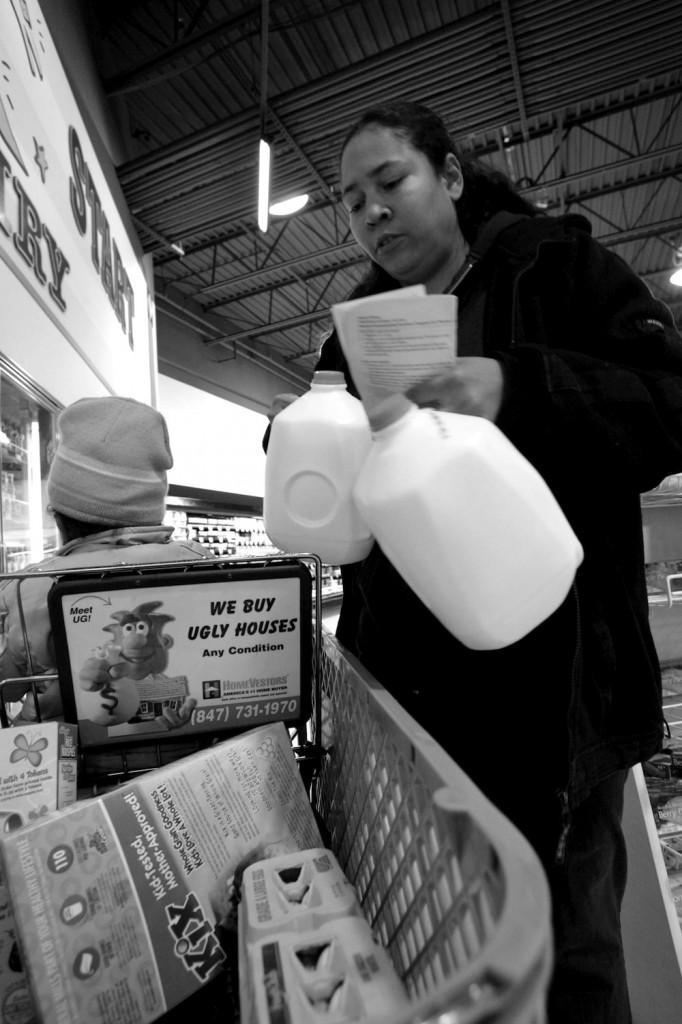Rape, Fraud and the Welfare System
November 6, 2012
The slothful, hypersexual, manipulative welfare mother has plagued headlines once again with the withdrawal of a recent Pennsylvania House Bill on Oct. 24. Drafted by Republican and Democratic state representatives, the Pennsylvania House Bill 2718 ruled that families currently under assistance with Temporary Assistance for Needy Families (TANF) would be refused coverage for newborns—unless the mother could supply proof that her child was a product of rape as well as the identity of her rapist.

The last clause is extremely difficult for me to swallow.
Though it is hard to see, the representatives that drafted 2718 had somewhat good intentions. Obviously they were trying to reform welfare in their state to promote their idea of a stable, model family while doing what they believed would conserve state funds and reduce fraudulent use of welfare benefits. But what happens to a woman who accidentally becomes pregnant and doesn’t have the money for an abortion? What if her religion prevents her from having one? Or what about the woman who loses her job once she becomes pregnant? And how could legislators expect to create effective legislation by glossing over important, complicated facts surrounding rape, children’s rights and family structures that construct welfare recipients’ home environments?
The bill’s mandate implies that lawmakers are concerned about women falsely claiming rape to take advantage of welfare benefits. But did they forget that according to the Rape, Abuse and Incest National Network, less than half, exactly 46%, of all rapes are actually reported? The problem is not that women are falsely claiming they’ve been raped. The problem is that not enough women are reporting they’ve been raped. Given the societal pressures surrounding a woman’s assault such as fear of retaliation from her attacker, severe trauma and humiliation, and even disbelief from authorities, there are plenty valid (though extremely unfortunate and problematic) reasons as to why a rape isn’t reported. Besides, is a woman’s rape only legitimate if it’s been filed with the authorities?
Legislators don’t even have a plausible reason to be concerned over welfare fraud. In a 2010 report from the United States Government accountability office, only four percent of allowances to families within the Supplemental Assistance Program (SNAP), otherwise known as the food stamp program, were incorrectly distributed. Within that four percent, two-thirds of them were errors on the part of SNAP caseworkers.
In attacking their parents, we’re indirectly harming the children that need the aid the most. Regardless of how they were brought into the world, a child is a dependent being that deserves the resources they need for healthcare, proper nutrition, and a prosperous education to grow.
With the overwhelming response from journalists at the Pennsylvania State House offices, the bill was revoked only hours after it was reported by various news outlets. However, even though the bill was struck down by those who drafted it, it is one of many government policies of its kind that has left a lasting impression on the American public with long held myths and stereotypes of those living on welfare. For one, in only giving aid to impregnated women who have been raped, the bill promotes the idea that most mothers on welfare are immoral, manipulative sexual deviants, using their children for checks. If it is only the woman that has been forced into conception is a valid applicant for assistance, then we are left with the implication that the pregnant woman who had consensual sex lacks work ethic and self worth, complacent with living in poverty.
As in any social service program, there is a population of people who abuse the system. But this is just a stereotype that disregards the fact that two-thirds of single mothers on welfare work outside of their homes. Furthermore, the aid that families actually receive from TANF is hardly extravagant. A family of three is only given up to $5,000 for a maximum of five years while on TANF, a program that only services two percent of Pennsylvania’s population. It’s not realistic to entertain the idea that mothers on welfare want to live as a dependent on the system (much less use their children as forms of profit) because the amount of money they receive from these programs is so meager. Plus, average middle and upper class Americans are quick to forget that are dependent on financial aid and other forms of welfare programs from the government themselves, with access to public education, mortgage deductions, Social Security and corporate tax breaks and in many cases, inherited wealth.
We are in the third wave of the feminist movement, but it feels like the first. The decision of whether or not a woman is worthy of receiving public assistance is based on her prior relation to a man as opposed to her personal merit, and lawmakers have found yet another way to humiliate welfare recipients by invading their personal lives, putting their (oftentimes painful) sexual past on display. In a year that has fostered such a large discussion on women’s rights, it’s unbelievable that our government officials have put forth yet another effort to gain control of women’s bodies and reproductive rights.








